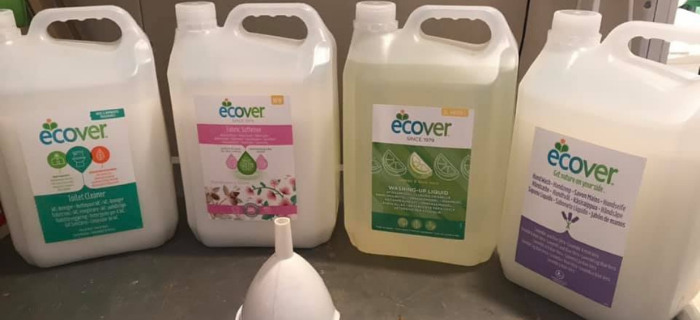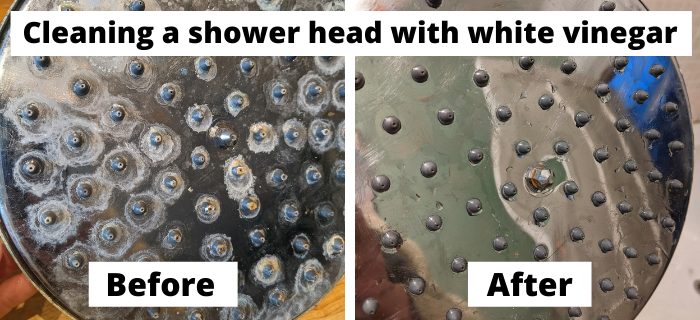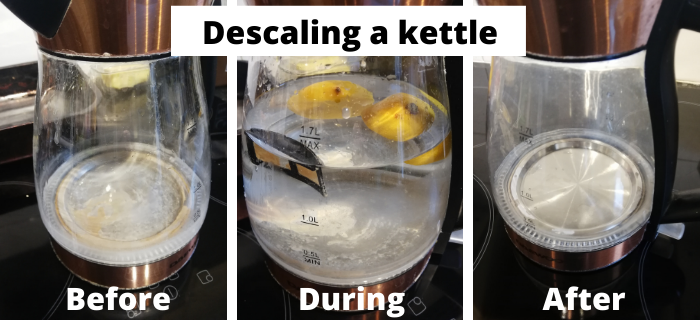Green cleaning hacks

Waste-saving wallet friendly cleaning ideas
There are so many different cleaning products on the market. This makes it more difficult to choose the ones that are good for your health, the environment, and your wallet.
To help you out, we’ve pulled together some waste-saving ideas to help make your home sparkle.
Refill your bottles
Perhaps the most simple of all our tips. Take your existing containers to a refill station to reduce waste. Products like washing up liquid, laundry liquids and hand soap can be found at many refill stations across Bristol. Not sure where to look? Use the City to Sea Refill app to find your nearest refill station.
Try concentrated cleaners
Did you know most standard cleaners contain a large percentage of water? An easy swap is to try concentrated cleaner refills. They remove the need for all that water to be transported, can be made-up using your existing containers and adding the water yourself. You can find concentrated refills at refill shops, some supermarkets, or some products can even be delivered to your door by post.
Many of the Waste Nothing Challenge Partners stock a wide range of cleaning product refills and concentrated cleaners. Try Nom Wholefoods, Preserve, ScoopAway, Scoop Wholefoods, Smaller Footprints and Zero Green.

Make your own
Alternatively, have a go at making your own cleaning products. Most homemade cleaning recipes only require a few ingredients (most common are white vinegar, citric acid and bicarbonate of soda). Buy the ingredients packaging-free at refill stations and give it a go.
Not only are home-made cleaning products non-toxic, but they are also quick, easy and cheap to make. Freinds of the Earth have some great recipe ideas. Did you know it was possible to make your own dishwasher liquid or even make your glasses sparkle with a dash of white vinegar
Challenger Tips:
- To unblock a shower drain put bicarbonate of soda and vinegar down the plug hole, and then flush with hot water from the kettle.
- Soak a shower head in white vinegar to remove limescale.

When life gives you lemons…
…Make them work for you! Did you know lemons are a great natural cleaner? They can cut through grease and can be used as a powerful descaler.
Before you put lemon scraps in the food waste bin, try these simple cleaning hacks:
- Descale your kettle by adding used lemon halves to the water. Boil the kettle and leave it overnight. In the morning rinse out and it will be sparkling clean.
- Try putting used lemons in water in an open, microwave-proof container. Microwave for 3 minutes to make a lemony steam. Let it sit for a few minutes, then remove the container and wipe the microwave clean with a damp cloth.
- For stains on your chopping board, rub a halved lemon on the surface and leave for half an hour. Scrub with a scrubbing brush and some dish soap and rinse. If there is a lot of dirt, repeat several times, or leave the lemon juice on overnight.
- Before popping them in your food waste, put used lemons in the dishwasher along with your dishes and dishwasher soap, and put it on your normal cycle. The lemons will act like a rinse aid, making your glasses shine and your dishwasher smell lemony fresh.
- Mix 1 part white vinegar with 1 part water in a spray bottle and add the juice of a lemon. Spray onto your shower screen and wipe off with a dry cloth.
- To refresh your fridge leave used lemon segments loose on a plate or in a bowl. This helps to absorb odours and make your fridge smell of lemons.

Choosing your cleaning tools
Plastic brushes, cloths and sponges can’t be recycled and have to go in your black wheelie bin when unusable. To make matters worse, plastic cleaning tools can also shed microplastics that get washed down the drain with the water.
However, there is a solution. Keep your eyes peeled for these plastic-free alternatives available in lots of shops in Bristol:
- Loofahs and coconut scrubbers: Both natural materials that are great for cleaning and can be composted at the end of their use.
- Metal-based scourers: Great for cleaning things like pots, pans and stainless steel draining boards. As a bonus they can be recycled at the end of their useful life.
- Compostable sponges and cloths: Most are made from wood fibre and can be home composted.
- Brushes made from wood and natural fibre bristles: These are available in all shapes and sizes.
- Reusable cloths: Either make them yourself or buy them from your local waste free shop to replace kitchen roll.

